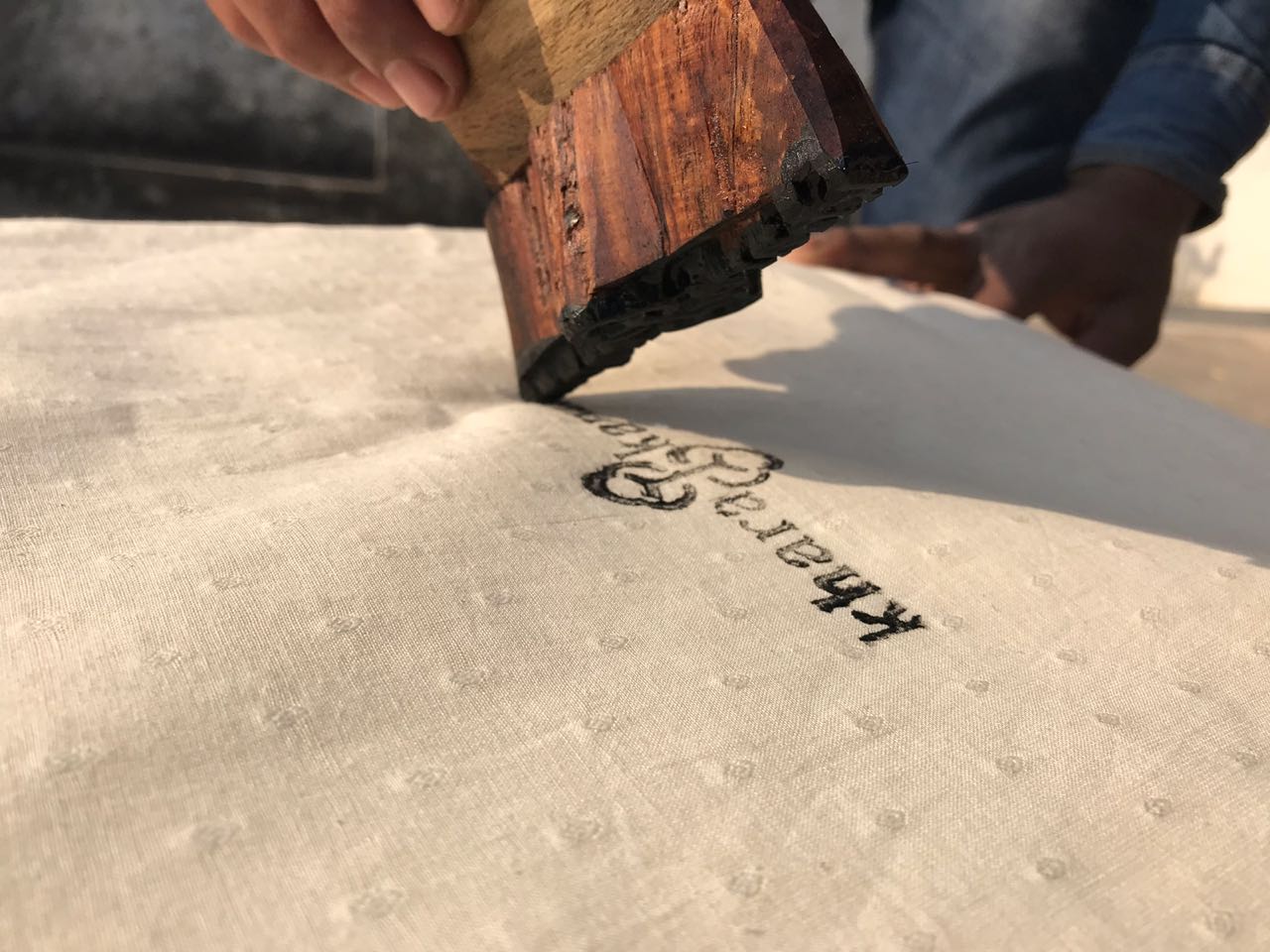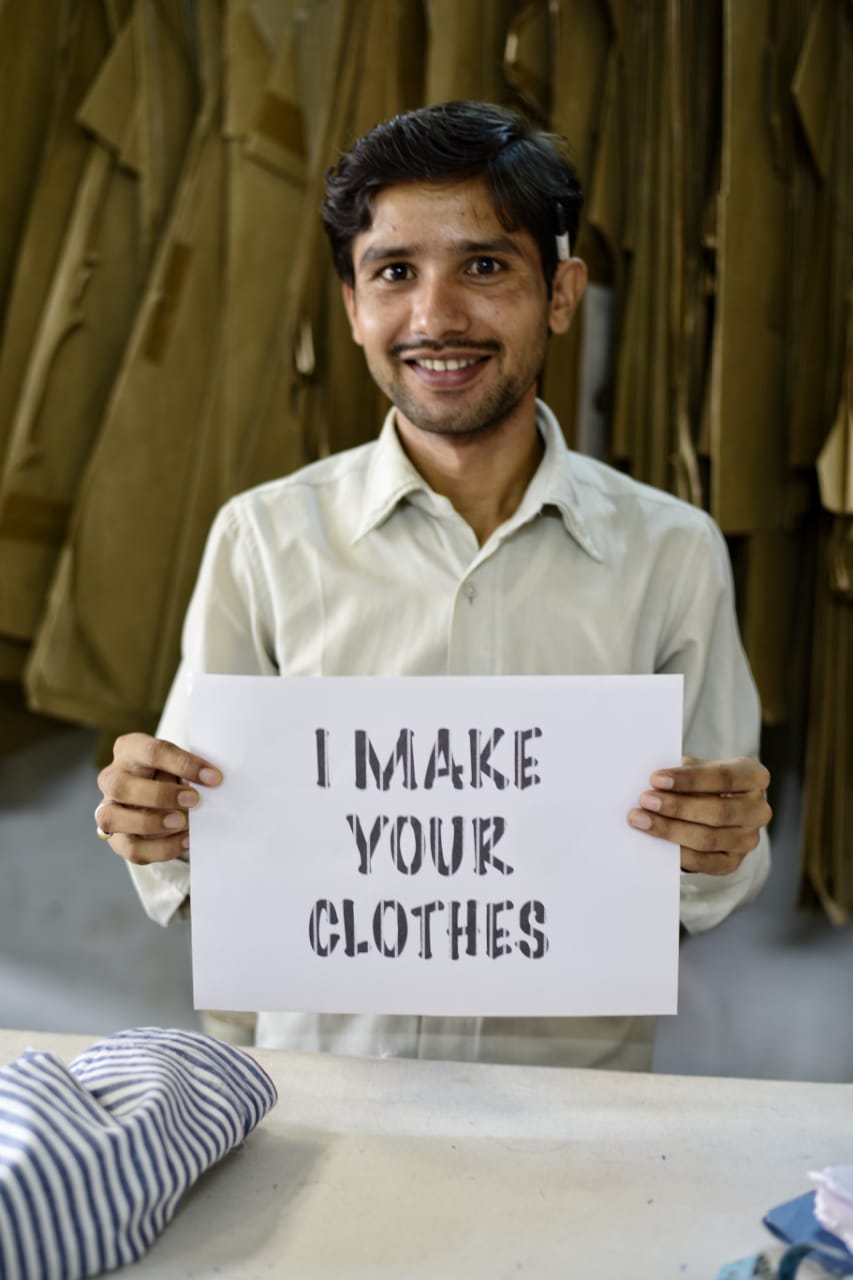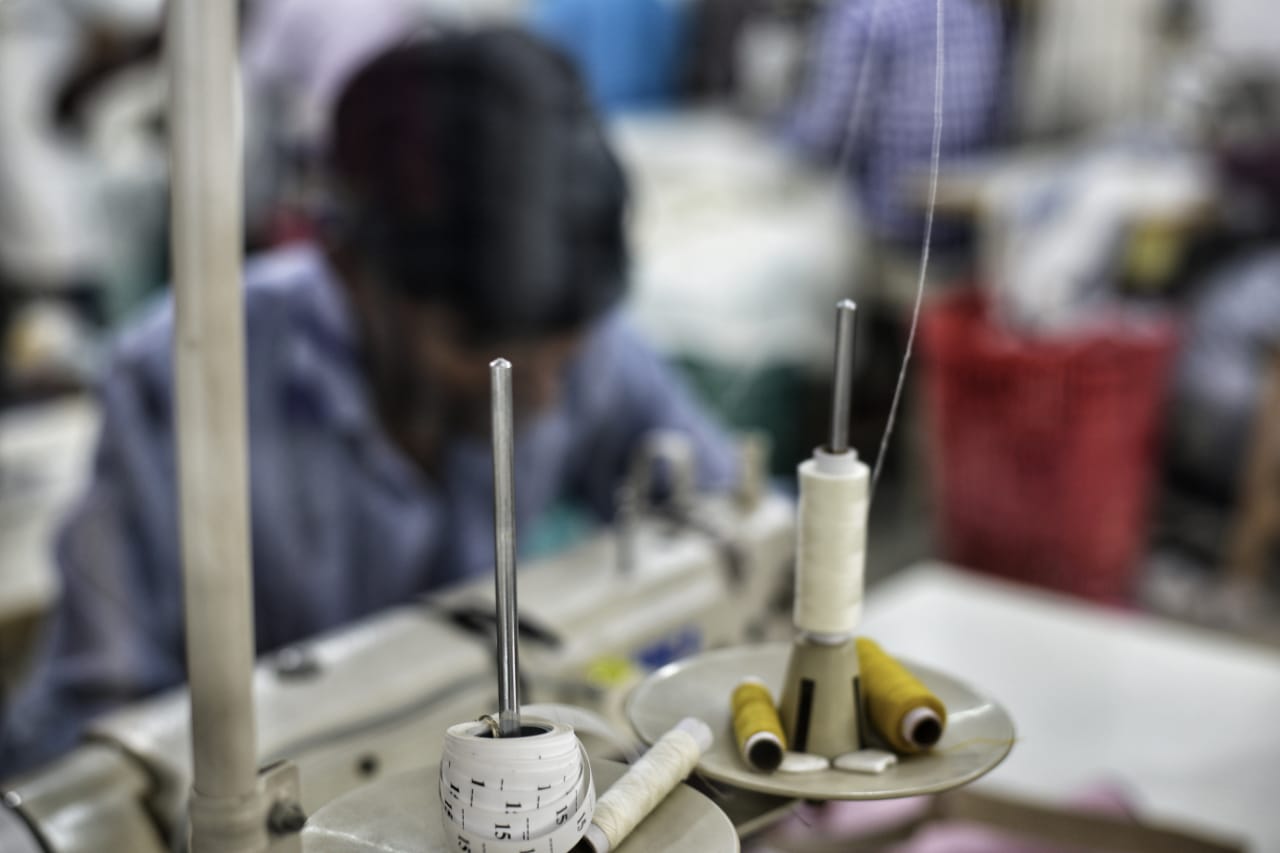shilpi yadav—Designer & Fashion Brand Entrepreneur
SHILPI YADAV
Make no mind space for nonsense.
Gurgaon, India
September 24, 2018
What makes KharaKapas so personally special to you?
KharaKapas is like my baby, my first baby. I conceptualized it in 2014 and launched the brand in February 2015. It absolutely matches my sensibility and is an outlet for my creativity. Whatever creative energy is inside of me is totally synchronized with the brand. From the clothes to the presentation, the silhouettes, colors, prints and fabrics that I work with, the packaging, even the way I am with my employees - every bit of it is an extension of me.
What drove you to create KharaKapas?
When I was working for a company as a clothing designer, my work received a fabulous response. But the job restricted me to designing at a price point and there was a whole brand philosophy that I wanted to be a part of. I would come back home from work angry and fretting every day. That’s when I realized that I should do something that was completely my own. The idea was to do a clothing label that was a reflection of me.
How did you discover your sensibility?
I don’t want to call myself a wanderer but I’m definitely a very curious person. I come from an army background and we would shift base every couple of years. Army houses are very typical of a region. Your home textiles and your clothes reflect the local fabrics and culture. My mom had all sorts of saris. We had bed linen from a different region, curtains from a different region. I was very fascinated by these things. I was also an outdoor person because army life is like that. You’re exposed a lot. The moving, shifting, new experiences, making new friends - all became a part of my personality.
So much change can be challenging. What impact did it have on you?
The positive is that you adapt very easily. But your sense of belonging disappears. I had trouble making permanent friends. I would choose not to resolve conflicts because I knew that they would all go away when I moved away. I just let the ball roll.
You think that this too shall pass, it’s a temporary thing, you move on. That was not very good. Later in life, holding on to a friend or a contact was a problem for me. Sure, from a superficial point of view, actually walking up to a person and talking was easy. But the closer bonds and ties became a challenge. After I got married, I started understanding these things because my husband really helped me understand my personality better.
What was it like when you started KharaKapas?
Honestly speaking, I was the happiest person when I quit my job. I had been literally starving for freedom. I initially had one tailor, one overlock machine, one stitching machine and one cutting table. Everything happened step by step. I was selling on Etsy and traveling for exhibitions. I didn’t think that India would take to my fabrics and cuts but surprisingly, I got both international and local orders. When I’m doing one thing, I’m completely into it. There were times when I would deliver pieces to my local customers in person. I think that personalized touch really helped. For about a year, I was glued to my phone. I slept with it and I answered every call. I was responding to messages and Instagram. I had an international shop and an Indian shop. Whatever profits I made, I used to buy equipment and pay rent. It was only after we filed our first returns that I understood how much business I was doing. That’s when I started figuring out a plan. KharaKapas was not going to be a boutique. It was going to be a brand.
A new and devoted mom. A young yet very successful brand. How do you do it all?
I’ve been a sports person all my life. I’m physically very strong. But I completely underestimated motherhood. Your body is recovering, mentally you’re recovering, your emotions are different, your hormones are different.
You feel a lot for your baby. You don’t get sleep. I may not be the best mother but I know that my child has to be in my arms. I want to experience everything. Give him a bath, give him a massage. He has to be close to me. We kept him on mother’s milk and I carried him everywhere, even on shoots and events. People find it strange that I run a company and I don’t hire help to take care of my child. If you think about it, that’s how women in villages, in fields, and tea gardens manage things. One thing that has happened is that I don’t have any mind space for nonsense. Small things that would bother me earlier have stopped bothering me.
Why not take a break from your business?
Had I not been working and not doing what I am doing, I’d have gone completely crazy. KharaKapas helps me stay balanced. I remain motivated and inspired. My first priority has been my boy but I’ve managed to run things successfully. Luckily for me, my office is next to my home. The only time I really neglected KharaKapas was for a week when I was in the hospital and then at my mom’s place. Now I have realized my ability and the kind of pressure I can take. I’m stronger and very proud of that.
Your strength is inspiring. Where does your confidence come from?
To be very honest, the one who really pushed me to start KharaKapas was my husband. I lacked confidence because I did not understand numbers and commercials. Yet when I was pushed to do it, my self-confidence and belief increased day-by-day. We used to do a lot of exhibitions in small cities to understand the local taste and to understand people’s feedback. That traveling, that interaction… all that made me really confident. And I was lucky enough that the brand got a very positive response. My personality developed as KharaKapas grew.
Do you ever feel nervous about your designs?
Oh absolutely, especially when I started the brand. I knew that my style worked for me but I didn’t know whether others would like it. Initially, the people who criticized my products would really bog me down. I would be low, not sure of what I was doing. But then I realized that there are many people who are saying good things. Customers are sometimes happy, sometimes thrilled, sometimes angry, and sometimes even nasty. But there is nothing that makes the business come crashing down. Take the positive out of what the critics are saying, see how you can improve things and move on. Whenever there’s a complaint, we pick up the phone and talk to the customer, even when they are being unreasonable. You can’t go deaf. When you hear them out, you understand what they are trying to say.
Whatever you can implement to improvise the product, you come out with something better. That is how you improve and grow. I have really learned a lot from my feedback.
What kinds of customers are attracted to KharaKapas?
I did not have any network or contacts to popularize the brand. I knew it was going to be word of mouth that would help me grow. The people who identify with my sensibility are very strong personalities. They are writers, editors, lawyers, doctors, heads of business and celebrity stylists. I’ve randomly seen news anchors wearing my clothes on TV. People get in touch with me and come to meet me. They are confident about what they like and don’t like. They understand what they are buying, know value for money, and my products make sense to them. I haven’t had to sell myself hard, it’s worked the other way around. That makes me very confident about what I am doing.
There are customers and then there are employees. How did you learn to be the boss?
I’ve learned on the job. I didn’t know anything about manpower and how to manage things. In the fashion industry, a lot of the tailors and laborers are men and are used to abusive language. They understand it very well. Maybe I’m wrong to say this but men in India do have certain issues with taking orders from a female boss. I figured out how to handle this by by observing my husband. He runs a company that employs a lot of labor. He would speak in shudh (pure) Hindi and use peculiar words that were very impactful. I adopted that. I never abused. I too speak firmly in shudh Hindi, even when I raise my voice. That really gets the point across.
It can’t be easy doing what you’re doing!
I used to give advances to my tailors when they needed to get their daughters married or had issues at home. Those same people would later answer me back and I used to feel cheated. One of my tailors actually lodged a case against me. Well-wishers would advise me to keep my business small in order to stay away from legal issues. I could have sent my orders outside for production but I wanted to keep full control of my company.
Also, as a woman-owned business, anything that’s not right becomes difficult to fix later. So I brought a labor lawyer on board and I always do things by the book even if it means lower profits. At least I am getting a good night’s sleep. I have a child at home and I can’t be worrying. Today, I can proudly say that I am a very fair and practical employer.
How do you handle difficult labor situations?
Once when I was doing a show in Bombay, my tailors threatened to walk off if I did not give them more money. It was festive season - a time that’s very good for the business. We were also in the process of implementing employee savings schemes. I asked them to hold on until that was done. But when I returned to the office, the tailor who was creating trouble came to me with demands. He raised his hand and said, “Chalo (let’s go),” and ten others stood up. I had fifteen tailors and there were eleven who left the workshop. They formed a circle and stood outside chitchatting. I tried calling a couple of them but they didn’t respond.
They knew that I needed them. I was so lost. I went to my house, locked the room and cried for one hour. But after that hour I got up and said, “To hell with it! What’s going to happen? I’m going to call customers and apologize.”
Our business was still small then and we were working directly with our customers. We had cancelations worth about 3 to 4 lakh rupees. It took us ten days to get people back in office. In about three weeks, we were back to where we were. I didn’t give in to their demands. I realized that so long as I did things by the book, nobody could hold me ransom.
It would be easy to take such situations personally.
I was initially that person who thought, “This is wrong. I don’t deserve this. This should not happen to me!” When I was an employee at a company, I was a tough one to handle. I had my moods and the feeling that I deserved more. A couple of months after starting KharaKapas, I called my ex-boss to apologize for being difficult and to say thank you for managing me for so long. I had realized that you have to see a bigger vision, have a bigger view. It’s not about one person versus the other. Businesses don’t happen like that.
Does it set you back when employees quit?
I’ve had a couple people who left KharaKapas because we’ve clashed. I used to worry, “Oh my god, I’ve taught him so much and now I’ll have to start from scratch and again put in so many hours.” I would have sleepless nights. But I realized that nobody is indispensable. When there is no way back, you look for someone who knows at least as much as the last person. You can train them better because you have learned from your mistakes. This maturity struck me much later in life. Now I say, “This too shall pass.”
So much has passed!
Sometime back, I was telling one of my masterjis (tailor masters) that I used to take my car and run to source small orders. And now, we’re working on a 400 piece consignment and things are going so smoothly. He said, “Aapki vajah se thees logon ke ghar mein chula jalta hai.” (“Because of you, thirty homes have a hearth.”) Coming from a man and as my head master, this meant a lot. It means that they give me that much respect and they take me seriously now.
Everyone needs someone to have their back. Who is your support?
My husband. Every time I have to travel there are no questions asked, he manages his work in a way to travel with me. We are a team and we’ve divided our jobs very well. He does all the grocery and researching for the baby. He is also the one person who takes all my anger and frustration. We were warned that our relationship would go through tough times when a baby comes.
Yes, we’ve both been sleep deprived and have had our set of challenges. But emotionally, our relationship has become even stronger after the baby. My mother used to tell me that the one thing where a couple’s synergies become absolutely identical would be with a baby.
How do you feel about where you are now?
All of my experiences have really helped shape my personality and make me a more confident person. KharaKapas is my dream, this is my baby. I’ve nurtured it from the beginning, even after my son came. I have struggled, not slept for days, but I have managed. Because I couldn’t give the brand up in someone else’s hands. I could not neglect it. The commercial success of the business has made me feel more confident. I am now able to take strong decisions. I don’t think I was ever so confident in my life. The personality that I have now is all because of KharaKapas. I’m a new person altogether. I have vision.
What would you say is your motto?
It doesn’t get easy, you get better. Change is going to come so don’t worry about it. With experience, you become better, and things will get better for you.











